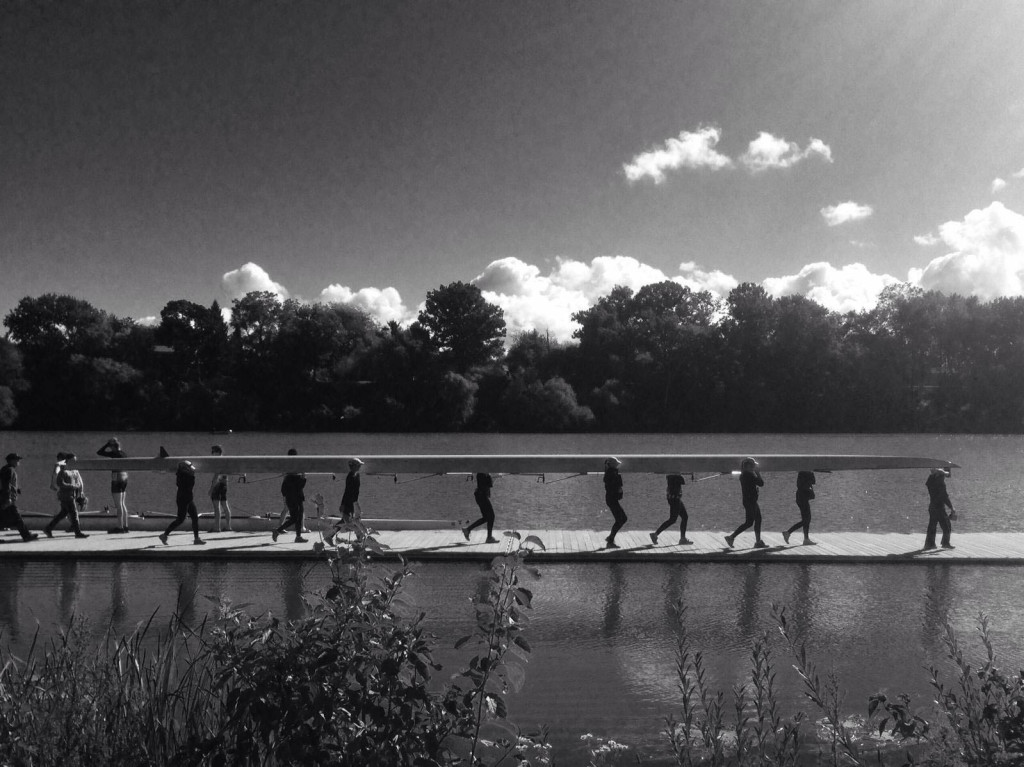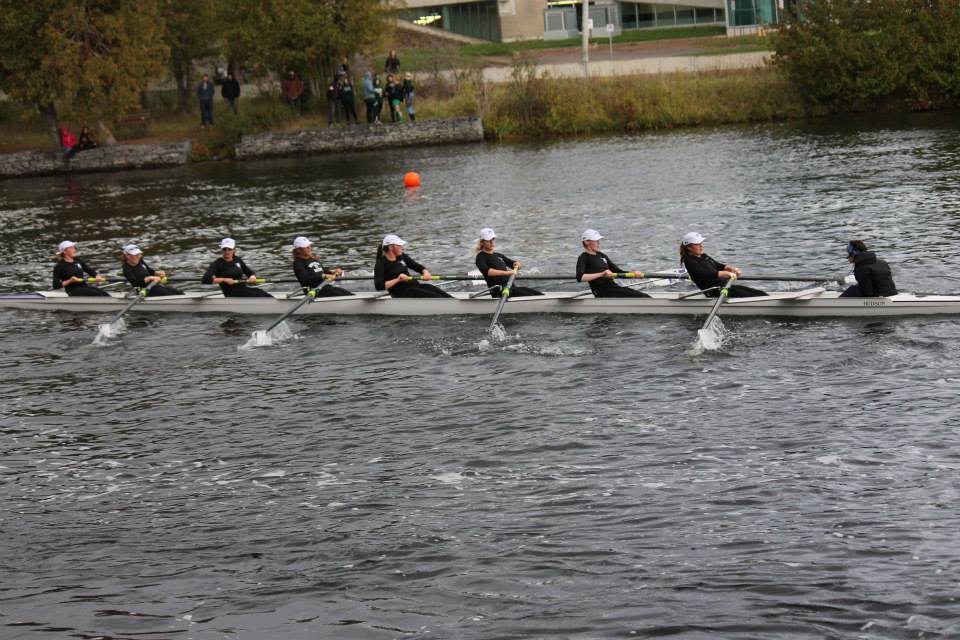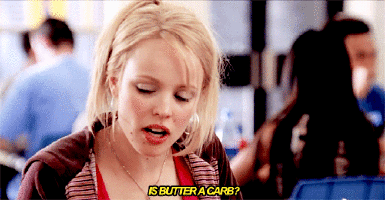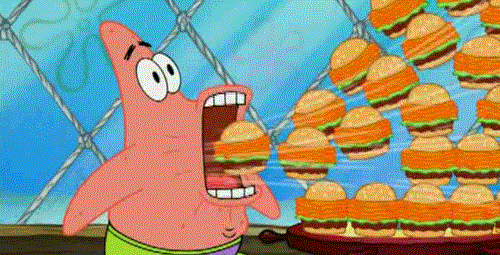Change. It’s starting something new, something different, something daring – maybe a new sport that you hope will change your life for the better.
If someone ever told me that I was going to have an eating disorder in my lifetime, I would have thought they were joking.
I was a high-level competitive volleyball player for six years, and learned the value of balanced eating and fueling for training sessions, while also enjoying treats every once and a while (who doesn’t?). I was never really concerned with my body weight because volleyball isn’t a weight-restricted sport. I ate well, trained regularly, and looked after my body’s needs.
Something New, Something Better
Fast-forward to last year. I was totally ready for a change and decided to join my university’s novice rowing team. Rowing is a sport of grit, determination, and brutality. I quickly got used to the 4 am wake-up calls and blisters that hurt like a motherf*cker, but what I wasn’t prepared for came just after the outdoor season ended, and winter training started.
Rowing is considered a tall person’s sport. Someone with long limbs, producing large amounts of power, is your ideal racer. What no one told me when I joined was that I was considered a light-weight: a special class in rowing made for people who are shorter, have a smaller stature, and weigh in at under 130 lbs.

Photo by Ryan Gibson
I love food, there’s no other way to put it. When I played volleyball, I would eat tons of good food to keep my energy up. I kept the same mentality when I joined the rowing team… that quickly changed, though.
The truth is, I have quite a bit of muscle, so even though I looked smaller, I was over the weight limit. I was told that I had to lose a couple of pounds to fit the class, which I thought would be easy (spoiler alert: it’s hard).
I received many “pointers” about how I could lose weight to fit the category. The catch? Although this was my first time ever cutting weight, I was told I only had about one and a half weeks to do it… cue panic.
I’ve never tried to lose weight purposely before, so this was a whole new challenge.

Photo by Irena Bronstein
- I was told that minimizing my water intake, cutting out certain foods, and reducing the total amount of food I ate would work wonders.
- I was told to download the MyfitnessPal to track my calories in and calories burned every day to make sure I was on the road to shed those pounds.
- I was to weigh myself every few days to make sure I was seeing progress.
- I was told to do extra workouts to make sure that I kept my weight within “acceptable limits.”
The list went on and on.
If that doesn’t scream development of an eating disorder, I don’t know what does.
The Sport Affects the Participant
That was the start of my downward spiral that ultimately ended with me developing an eating disorder. As an athlete, I’m supposed to fuel my performance and recovery, not the opposite. Unfortunately, according to the NCAA, eating disorders occur way too frequently for most female athletes because of pressures placed on them by coaches for performance, but society for appearance.
Training six days a week and cutting carbs as well as total food consumption left me mentally and physically exhausted. I could barely stay awake during my classes or study sessions, but I’m not the one to give up on a goal so easily, so I kept pushing on.
When the week and a half was up and I stepped on the scale for weigh-in, I had lost seven pounds. To lose one pound, you have to burn 3500 calories. I lost seven… you do the math.
My teammates were proud of me, and my friends told me I looked great. I was, “so fit and skinny.” I ate that ish up like it was one of my low-cal plain rice cakes, and used it as motivation to keep going.
To lose the weight and maintain it, I had to make sacrifices which eventually turned into a chronic bad relationship with food.
I stopped associating my favourite foods with happiness and good times, and more as just calories and enemies that would keep me from my goal. I gave up milk, cheese, pasta, bread, chocolate… the list goes on. I stopped enjoying the flavours of food and only ate those that would help me keep my weight down.

GIF courtesy of giphy.com
I stopped going out for food with my friends to unwind after a crazy busy week because I feared how many calories were in a dish, and how much extra training I would have to do the next day to prevent weight gain. I was addicted to recording every single thing I put in my mouth and burned off to make sure I was running a deficit, or maintaining a net zero intake.
Some people can handle the demands of being a part of the light-weight class in a weight-restricted sport. I definitely was NOT one of those people.
Road to Recovery
I eventually quit the team after 8 months, not because I didn’t like the sport, but because my mental and physical health were at an all-time low (and because the doctor said it was in my best interest to do so). I pretty much was an emotional, tired, and starving time bomb that went off. I was constantly miserable and exhausted.
After quitting, I thought my relationship with food would sort itself and go back to normal again… wrong (what was normal anymore?).
The first week after I quit, I ate anything and everything in sight, and I mean ANYTHING and EVERYTHING. After being off for a month, I gained close to 10 lbs. I was disappointed in myself because I had gained back all of the weight, and then some, that I had worked so hard (and unhealthily) to lose.

GIF courtesy of giphy.com
People told me I looked great and healthy, but I just couldn’t see what they saw when I looked in the mirror. So the vicious cycle that I thought I had broken started again.
Fast Forward
With the help of the people closest to me, I was able to level out the extreme eating cycles. But even today, almost a year after quitting the weight-restricted sport, I still have thoughts about what I should/shouldn’t be eating, and how much exercise I would have to do to burn off the smoked butterscotch latte I just had.
It’s been a long road, and by no means am I close to the end of it, but hopefully one day I’ll be able to love food unconditionally again – enjoying the great flavours food has to offer, without worrying about the calories.

Photo by Margaret Gibson
Long story short, be wary of the major changes you make in your life because some will harm you more than they will help you.
Educate yourself, and if you think something might be detrimental to you and your health down the road, take precautions because recovery from something like this is a journey that will last a very long time, and isn’t always the prettiest.




